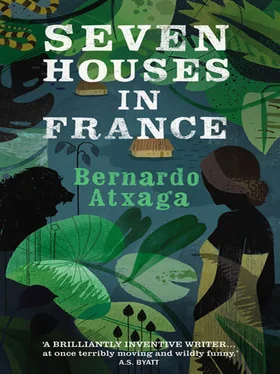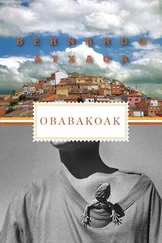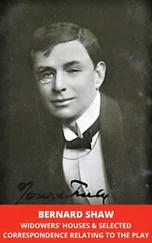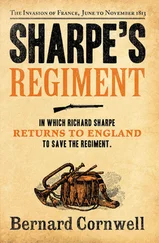Then, when he heard the jingle of bells announcing the arrival of the coach in the main street of the village, the priest spoke in a different tone:
‘Do you have the blue ribbon with you, Chrysostome?’ he asked.
Chrysostome undid the top buttons of his shirt to reveal his chest and the blue ribbon. The priest’s face lit up with joy.
‘Yes, wear it like that, Chrysostome, in full view! Let the other soldiers see that symbol of your purity! And at difficult times, remember, Our Lady is with you. And I will be praying for you too!’
The coach stopped in front of them. The priest embraced Chrysostome. He was not his son, but he loved him as if he were.
During his first year in Yangambi, Chrysostome did not lack for letters from the priest. Once a month, he would look in his pigeon-hole at the Club Royal and find an envelope with just one word on the return address: Britancourt. In a very firm, upright hand, the priest would bring him up to date on the village news, on the births and deaths, on how things were with his father — ‘he’s had a good crop of beet this year’; he would also summarise the sermons he had given and sometimes, along with comments about the weather, he would speak to him of flowers — ‘there are a lot of poppies this year, some meadows are completely red with them’. The letters were quite long, and Chrysostome read them a little at a time. And with each reading, the words from his childhood nestled deeper down inside his heart. ‘Cleanliness is the greatest of the virtues. If a Christian keeps himself clean inside and out, he will develop an iron exterior that no enemy sword can penetrate.’ He also remembered the priest’s other advice: ‘The solution lies in … pollutio . Continue along that path.’
Thanks to pollutio , he kept himself healthy, pure, and maintained an iron exterior, quite unlike the other officers of the Force Publique stationed in Yangambi. Most of them were infected with some vile disease or other and had to turn to Livo, who gave them a plant called olamuriaki , which helped relieve the pain and discomfort. The worst afflicted were, as always, Richardson and Van Thiegel. On one occasion, after drinking heavily, Richardson had shown them his male member, exclaiming like a madman: ‘What do you think of that, eh?’ Chrysostome thought it disgusting, covered as it was in scabs and ulcers. And the Lieutenant, that loudmouth Cocó, was in an even worse state. His hands shook now, although it was hard to say in his case if this was due to excessive drinking or because he overdid the olamuriaki . And the fool thought himself a good marksman! Didn’t he realise that the other officers let him win in the shooting competitions? Until, that is, Chrysostome came along, because he never played games and would never have allowed anyone to beat him, not even the King himself. If a man wanted to win, then he should improve his aim. He should live in purity and prudence. He should wear a blue ribbon around his neck.
Captain Lalande Biran was better than the other officers. He avoided infection by having only virgins brought to him, thus ensuring Donatien’s health as well, because in that respect, too, his assistant followed him as faithfully as a dog. In other ways, though, Lalande Biran was a strange man. Chrysostome would have liked to talk to the priest about him, but when he tried to put his thoughts down on paper, he couldn’t. He found it hard to explain exactly what the Captain was like. Livo said he was a muano , a servant of the Devil, which is why he could be two or three different men at any one time; it was why his oimbé was always so murky. Perhaps Livo was right. The Captain didn’t drink much, but he smoked a lot; he enjoyed swimming, drawing and writing poetry, and was generous enough to be able to recognise other men’s good qualities. He had often told Chrysostome how much he admired him as a marksman and said that when he returned to Brussels, he would place him at the service of a duke who held a high position at Court and was in need of protection. Believing that the Captain respected him, Chrysostome had felt profoundly disappointed when Lalande Biran gave in to Van Thiegel’s cajolings and sent him off into the jungle in search of girls, as if he were some twopenny-halfpenny officer, on a par with Donatien. That order had been a hard blow to Chrysostome. He went from thinking himself the best soldier in Yangambi to feeling that he was the lowliest of servants. He would have liked to talk to the priest about it, but found having to acknowledge the degradation so shameful that he could not write a single line. In the end, he told Livo, who gave his usual response:
‘The Captain is a muano . A great enemy.’
Livo put his fingers to his eyes to remind Chrysostome of Lalande Biran’s blue-gold eyes, the eyes of a muano .
Life went on for Chrysostome with no great upsets, as long as he kept safely stored away, like eggs in a nest, the words engraved on his heart. Suddenly, though, the enemy’s sword launched a fierce attack on him.
First, with one powerful blow, it snatched the priest from him. He received the priest’s last letter shortly after winning the contest for shooting the most mandrills. ‘The Lord is calling me,’ the priest wrote in a hand that was no longer upright or firm. ‘I will protect you from above. Goodbye, my child.’ For the first time, Chrysostome thought about his life, about the twenty or so years he had been in the world, and a shudder ran through him. At night, clutching the gold medal of Our Lady in his hands, he would pray himself to sleep.
A few weeks later, the enemy’s sword struck again. This was a far gentler attack, or so it seemed, but that only made it all the more dangerous, very dangerous indeed.
One day, on an expedition in search of another virgin for the Captain, Chrysostome came across Bamu. He noticed her at once. Her skin was cinnamon-coloured rather than the deep black of the tribes living near Yangambi, and she had green eyes. And her hair, although short, wasn’t stiff and curly. The most surprising thing, from his point of view as a soldier, was her attitude. When cornered, she did not meekly bow her head, but grabbed a spear with her two hands and forced the askaris accompanying him to take a step back. A grey-and-red parrot flew out of its open cage onto the roof of the hut and started shrieking: ‘Bamu! Bamu! Bamu!’
Chrysostome ordered the askaris to march on and leave the place as quickly as they could, but it was too late. The arrow, just one arrow, but far more lethal than all the arrows fired at St Sebastian, had pierced his heart. And its poison left him feeling confused, intoxicated, incapable of seeing what lay before him, incapable of hearing what the askaris were saying; he was, in short, in love. In his mind he heard the parrot shrieking: ‘Bamu! Bamu! Bamu!’
When he returned to Yangambi, he tried to remove the arrow, but the poison was already flowing in his veins, and nothing could now stop the transformation that had begun in the jungle. He found Livo and asked if he knew a tall girl with light skin and green eyes.
‘Bamu,’ said Livo.
‘Is she clean?’ he asked.
‘She is a child.’
Chrysostome gave a sigh of relief.
Livo had travelled, he had known many white men, and this question did not surprise him. The only thing that shocked him was Chrysostome asking him to act as intermediary, because he wanted to make a formal visit to Bamu and needed the consent of her parents to do this. Unbeknown to Livo, Chrysostome was following the customs of Britancourt peasants, not those of the soldiers of Yangambi.
‘Are you going to send her a present?’ Livo asked. He, in turn, was following African customs.
Читать дальше












